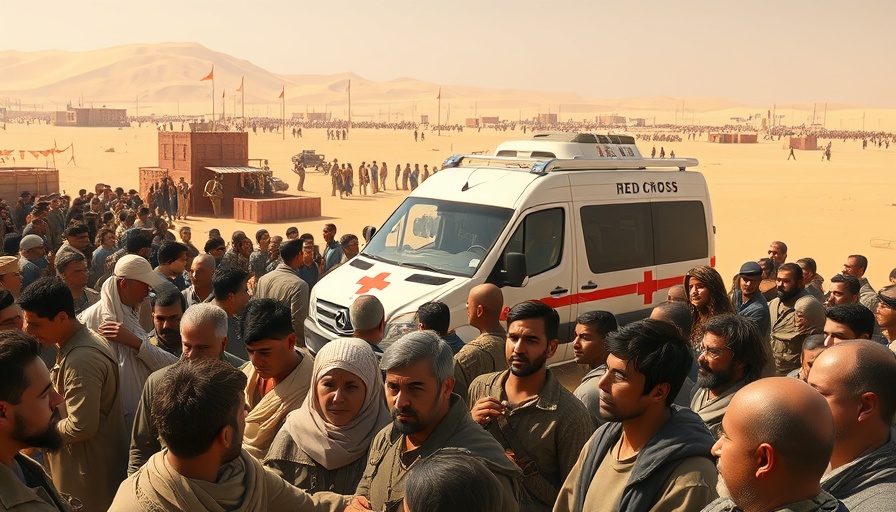
U.S. Proposal Stirs Concern in Israel
The recent U.S. proposal to Hamas has introduced a new dynamic to the ongoing conflict, raising alarms within Israeli leadership. The initiative, part of the Witkoff framework, is designed to pave the way for renewed negotiations by addressing two critical concerns: the immediate release of Israeli hostages and a potential 40-day cessation of hostilities in Gaza. However, the second phase of this approach, which discusses the postwar reality in Gaza, has Israel questioning the implications and future security of the region.
Why the Hostage Situation is Central
The complexity of the hostage situation cannot be overstated. For many Israeli families, the return of loved ones is a pressing concern, with each day adding to their suffering. A 40-day pause in fighting, although fraught with its own challenges, offers a glimmer of hope for families desperate to see their relatives return home. However, as the U.S. brokers this deal, it is imperative to remember the broader context – what happens after the fighting stops? This question looms large and is at the heart of Israeli concerns.
Historical Context of U.S. Involvement
The U.S. has long played a pivotal role in Middle Eastern diplomacy. Its proposals often aim to balance security concerns with humanitarian needs. Previous attempts at negotiations have produced mixed results, leading to skepticism among Israeli officials regarding new initiatives. Historically, promises have sometimes resulted in deeper conflicts; thus, any new proposal is viewed with caution.
The Potential Impact on Regional Dynamics
Israel’s apprehension also stems from the potential shift in power dynamics that could follow a U.S.-backed resolution. Past experiences suggest that such interventions can embolden groups like Hamas, leading to long-term repercussions for Israel’s national security. If the postwar framework aligns too closely with Hamas' interests, it could diminish Israel's ability to respond effectively to future threats. Understanding these dynamics is crucial for socially conscious individuals who care about the humanitarian aspects of the conflict.
Hope or Concern: Perspectives from Different Faith Communities
For mission-minded individuals and faith communities, this situation may pose questions about moral responsibility and the role of Christians in advocating for justice and peace in the region. Engaging in interfaith dialogue, members of various Christian denominations are challenged to reflect on how they might contribute positively to peace efforts. Viewing this through a humanitarian lens, many believe that advocating for both the safety of Israeli citizens and the rights of Palestinians is essential.
The Road Ahead: Calls for Diplomacy and Effective Advocacy
The dialogue surrounding this proposal urges Christians and other advocates to take action. Engaging in advocacy for just policies requires robust discussions that incorporate empathy, understanding, and a commitment to peacebuilding. Church communities are in a unique position to foster conversations about these complex issues, aiming to bridge divides rather than deepen them. Encouraging informed discussions that consider the perspectives of both Israelis and Palestinians can contribute to more thoughtful advocacy efforts.
As the situation evolves, it is essential for communities to remain engaged, informed, and prepared to voice their perspectives. Recognizing the humanity in both sides of the conflict encourages enduring change and deeper understanding. Therefore, there is an urgent need to explore these themes further, raising awareness and fostering conversations within fellowships and wider communities.
 Add Row
Add Row  Add
Add 








Write A Comment